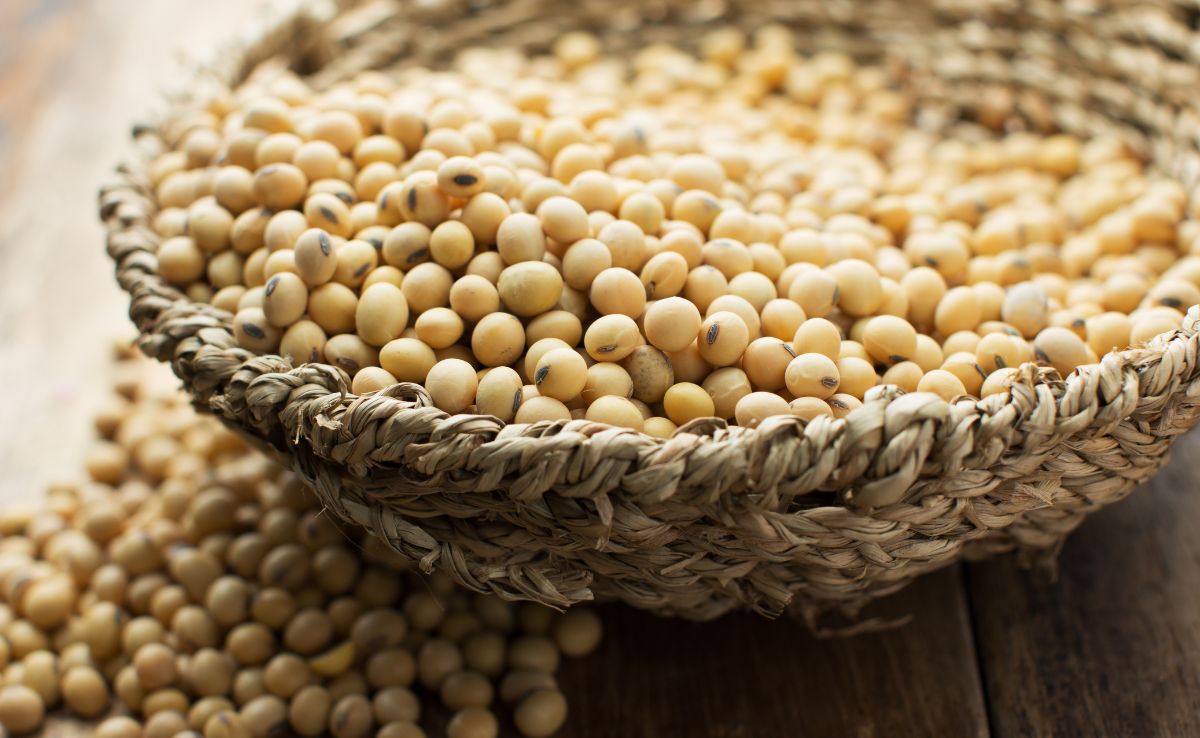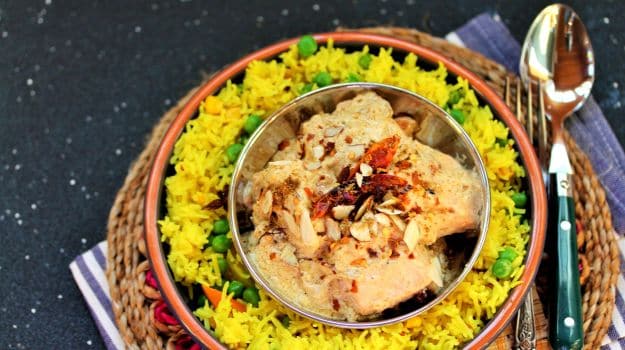Indian cooking gets a bad reputation for being daunting and almost too difficult to fit into your everyday repertoire. This misconception may be gradually changing, but not quite fast enough. But on the contrary, everyday Indian cooking is flavorful, practical and filled with all the health benefits from spices that we all want to incorporate into our lives.
A core component of the essential taste of Indian food is ensuring the flavors are fresh and bright and not bogged down by unnecessary reheating and refreshing, something often the trademark of the average restaurant fare. In addition to emphasizing the simplicity of preparation, I also am a big proponent of cooking with practical and readily found ingredients, minimizing the need for multiple visits to grocery store.
The key to Indian food is in the spices
If you are intimidated by Indian spices, a fair number of the typical seasonings are available in a well-stocked grocery store, and the rest can be kept stocked by an annual or every-six-months trip to an Indian specialty store. Shortcuts and practical cooking are not uncommon in the Indian home kitchen; after all, the Indian home cook is as time-strapped as anyone else.
Stocking a basic spice pantry can go a long way toward cooking your favorite Indian meals on short notice. The basics for me would be the essential Indian spice kit from my "Spices & Seasons: Simple, Sustainable Indian Flavors" cookbook: turmeric (sold in powdered form), red cayenne pepper, whole cumin seeds, whole coriander seeds, fresh cilantro, ginger and garlic.
To add to the basics, you can include dried fenugreek leaves, green cardamoms, cinnamon, cloves, whole black peppercorns, whole mustard seeds and fresh curry leaves. It's nothing terribly daunting if you give the list a fighting chance and open your horizons to a world of Indian flavors.
A note of advice and caution: While we can simplify the list of ingredients, it is important to use fresh spices.They are the soul of a flavor-based cuisine and cannot be substituted using a jar of ready-made curry, something that really is a misfit in most Indian kitchens.
The next step beyond stocking the spices is learning to use them. I personally use spices to create the foods of my childhood: simple, nourishing flavors that have sustained me every day. However, through teaching people how to cook Indian food, I have learned most people rush to the kitchen to replicate the flavors that have tantalized their taste buds in the last festive meal they savored. This is sometimes their first blush with the cuisine and often what captivates their imagination and what they want to re-create in their own kitchen.
Keeping this in mind, I offer you practical versions of three classic Indian dishes and suggestions for a few others. In these dishes, I have simplified the cooking techniques and used everyday ingredients to conjure up practical variations of dishes that will take you to three diverse parts of India.
Creamy, Well-Seasoned Black Beans
This recipe for black beans is inspired by the classic Indian black lentil recipe, found in restaurants called Dal Makhani. Other than using everyday black beans, I have lightened the recipe significantly and developed it for a slow cooker, where it happily cooks into perfection. If you do not have a slow cooker, you can do this on the stove top in a heavy-bottomed pot with a tight-fitting lid.
Prep time: 2 to 3 hours (to soak the beans)
Cook time: 4 hours in a slow cooker
Total time: About 7 hours, mostly unattended.
Yield: Makes 8servings
Ingredients
1 1/2 cups dried black beans
2 to 3 tablespoons olive oil
1 tablespoon minced garlic (about 4 cloves)
1 tablespoon freshly grated ginger
2 red onions, finely diced
1 tablespoon freshly ground cumin
1 1/2 teaspoons freshly ground coriander
1 1/2 teaspoons salt, or to taste
1 teaspoon red cayenne powder, or to taste
4 tomatoes, diced, or 1 cup canned chopped tomatoes
1 tablespoon dried fenugreek leaves (optional)
3 tablespoons sour cream
2 to 3 tablespoons chopped cilantro
Diced or sliced red onions for serving
Directions
1. Place the black beans in plenty of water and soak for 2 to 3 hours or overnight. Drain and set aside.
2. If your slow cooker has a saute function, turn it on and add the olive oil. Otherwise, you can do this in a skillet on the stove.
3. Add in the onions and cook for about 5 minutes, add in the ginger and the garlic and saute until the onions are soft and golden.
4. Add in the cumin, coriander, salt and red cayenne pepper and cook for a minute.
5. Add in the tomatoes and cook for 2 more minutes. If using a skillet, move the mixture to the slow cooker. Once the tomatoes are soft and pulpy, add this mixture to the slow cooker, add in the black beans with 3 cups of water and cook on low for 4 hours.
6. Remove the cover and stir in the fenugreek leaves, sour cream and cilantro before serving.
Note: You do want a fairly thick gravy for this dish. If your sauce is too thin, remove to the stove top and thicken for about a half hour before adding in the sour cream.
Bengali Yogurt Fish Curry (Doi Maach)
This signature fish curry is often a wedding dish, a beautiful meal reminiscent of a korma. The traditional version uses fish steaks deep-fried and immersed in a delicate yogurt sauce that is slow-cooked to perfection. My version uses salmon fillet, which offers a rich, dense flesh without the need for deep-frying. I use Greek yogurt to ensure a thick gravy without the precision and care of low and slow simmering in a heavy-bottomed copper pot, which is traditional for cooking Bengali food.
Prep time: 10 minutes
Cook time: 25 minutes
Total time: 35 minutes
Yield: Makes 6 servings
Ingredients
1 1/2 pounds salmon fillet (or any other firm-fleshed fish)
1 1/2 teaspoons salt, divided
1 teaspoon red cayenne pepper
3 green cardamoms
1-inch piece of cinnamon
6 to 8 cloves of garlic
3 tablespoons canola oil
1 large red onion, thinly sliced
1 tablespoon freshly grated ginger
1/2 teaspoon ground cumin
1/2 teaspoon ground coriander
1 teaspoon sugar
3/4 cup Greek yogurt, beaten
1 tablespoon raisins
Whole red chilies and slivered almonds for garnish
Directions
1. Cut the salmon into 2-inch pieces and set aside.
2. Combine 1 teaspoon of the salt and the red cayenne pepper and sprinkle over the fish.
3. Combine the cardamoms, cinnamon and garlic cloves in a bowl and break a few times using a mortar.
4. Heat the oil and add in the broken spices and the onion. Cook the seasoned onion low and slow until wilted, soft and crispy. This should take about 10 minutes.
5. Add in the grated ginger, cumin and coriander and mix well. Stir in the remaining salt and sugar and mix in the yogurt with 1/2 cup of water.
6. Cook until the yogurt is well mixed and gets a pale ivory color.
7. Add in the fish pieces in a single layer and mix in the raisins.
8. Cook the mixture until the fish is cooked through (about 15 to 20 minutes).
9. Garnish with the chilies and slivered almonds and serve.
Kerala Chicken Stew
This delicate and subtly spiced stew is a signature dish on Sunday mornings, usually served with lacy and flavorful appams. The stew is usually cooked with layers of freshly made coconut milk and develops its flavor from local produce such as green plantains and taro root. In this recipe, I have used practical stewing vegetables such as fresh carrots, baby potatoes and corn to create a dish that is just as good for your cool Sunday table.
Prep time: 15 minutes
Cook time: 45 minutes
Total time: 1 hour
Yield: Makes 6 to 8 servings
Ingredients
2 to 3 tablespoons oil (You can use coconut oil)
1 teaspoon mustard seeds
10 to 15 curry leaves
1 red onion, diced
2 to 3 cloves of garlic
1 tablespoon freshly grated ginger
1 tablespoon coarsely ground black pepper
1 teaspoon ground cumin
1 teaspoon ground coriander
1 large cinnamon stick
2 to 3 pods green cardamom
2 pounds of chicken, trimmed and cut into 1-inch pieces
1 teaspoon salt
2 medium-sized tomatoes, diced
3 to 4 carrots, peeled and cut into small pieces
2 to 3 medium-sized potatoes, peeled and quartered
1 cup coconut milk
1/2 cup frozen green peas
1 to 2 tablespoons finely chopped cilantro
Directions
1. Heat the oil and add in the mustard seeds, then wait until the seeds begin to crackle. Add in the curry leaves and red onion and cook for about 6 to 7 minutes, until the onions are soft and beginning to turn pale golden.
2. Add in the garlic and ginger and stir well, cooking for about 1 minute.
3. Stir in the black pepper, cumin, coriander, cinnamon stick and cardamom and mix in the chicken with the salt. Stir and cook the chicken for about 10 minutes, until the liquid has evaporated and the chicken is well seared.
4. Add in the tomatoes and mix well.
5. Stir in the carrots and potatoes and the coconut milk and simmer the mixture for 25 minutes, until the chicken and vegetables are tender.
6. Add in the green peas and simmer for 2 minutes.
7. Garnish with cilantro before serving.
Copyright Rinku Bhattacharya via Zester Daily and Reuters Media Express
(This story has not been edited by NDTV staff and is auto-generated from a syndicated feed.)







